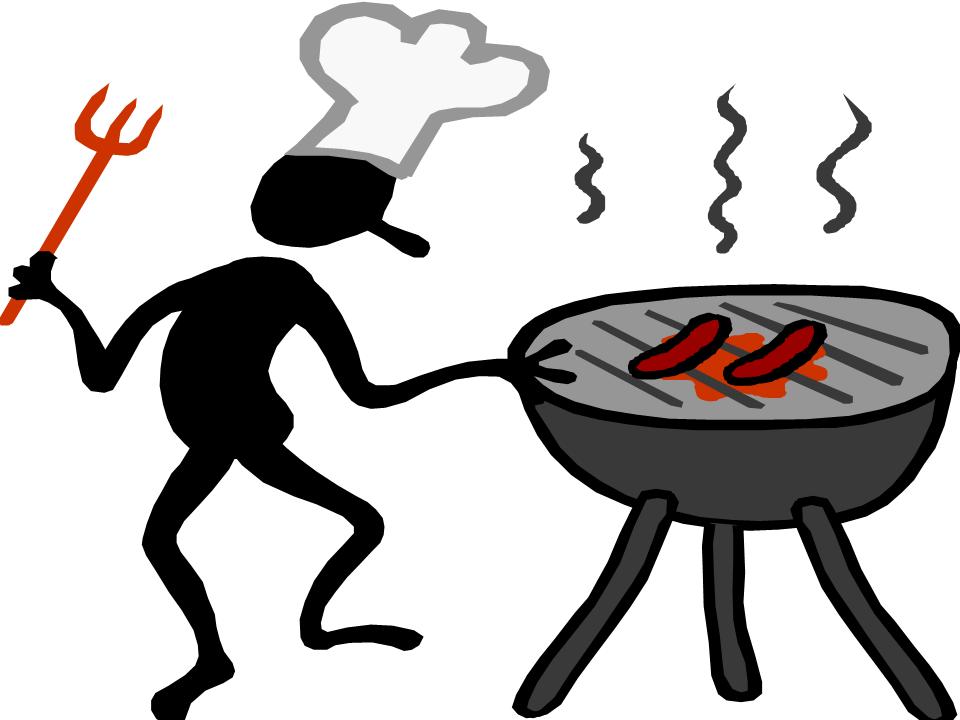
The American Institute for Cancer Research, an organization that studies the impact of lifestyle on cancer risk, recently issued a warning about the hidden health hazards of cookouts and campfires. Research is now showing diets high in red and processed meat increase the risk for colon cancer. By grilling meat, red and white, a potent cancer-causing substance can form. Pan frying or grilling meat, poultry and fish directly over an open flame meat under high heat causes compounds called heterocyclic amines (HCAs) and polycyclic aromatic hydrocarbons (PAHs) to form. The formation of HCAs and PAHs is influenced by the type of meat, the cooking time, the cooking temperature, and the cooking method. These substances have shown the ability to damage our DNA, increasing the risk of cancer.
Healthy grilling tips to incorporate into your next backyard grilling session include:
- Mix up the meat. Diets high in red meat (beef, pork and lamb) are linked to an increased risk for colon cancer, as well as processed meats (hot dogs and sausages). Try incorporating more chicken and fish, rather than typical summer goodies such as steak, burgers and franks. Ground chicken meat is a good alternative to beef burgers. Another way to change up typical summer cookout food is to incorporate spices, herbs and sauces to fish and chicken.
- Marinate! Studies have shown that marinating meat, poultry and fish for at least 30 minutes can reduce the formation of HCAs. Using a mixture of vinegar, lemon juice or wine along with herbs and spices seems to be the key. Scientists are still investigating precisely how these marinades help lower HCAs, but it’s possible that compounds in these ingredients are responsible.
- Partially pre-cook. PAHs are deposited onto the meat by smoke. So by reducing the amount of time meat spends exposed to flame by first partially cooking it in a microwave, oven or stove, you can reduce the amount of PAHs you ingest. (Be sure to place the partially cooked meat on the preheated grill immediately. This helps keep it safe from bacteria and other food pathogens that can cause illness.)
- Stay low! Cook the meat over a low flame. Doing so can reduce the formation of both HCAs and PAHs, and help keep burning and charring to a minimum. Reduce flare-ups by keeping fat and juices out of the fire: cut visible fat off the meat, move coals to the side of the grill and cook your meat in the center of the grill. Finally, cut off any charred portions of the meat before serving. (Unfortunately those charred parts on the meat are what contribute to the increased cancer risk).
- Throw on some color. Colorful vegetables and fruits contain fiber, vitamins and naturally occurring compounds called phytochemicals. These substances add anti-cancer action to your backyard bash. And by loading up on plant foods, you can cut back on red and processed meats. Try onions, zucchini, eggplant, bell peppers, or tomatoes in thick slices on the grill, in a grill basket or in chunks for kebabs. Another favorite: corn on the cob. Grilling brings out the sweetness in veggies, so even reluctant veggie eaters can find something to love.
Ongoing studies are investigating the associations between meat intake, meat cooking methods, and cancer risk. But by following these tips you will help keep your cancer risk low, while still being able to enjoy summer cook out fun. When all else fails, remember the good old saying, “everything in moderation.”
Source: American Institute for Cancer Research, aicr.org and National Cancer Institute, cancer.gov

